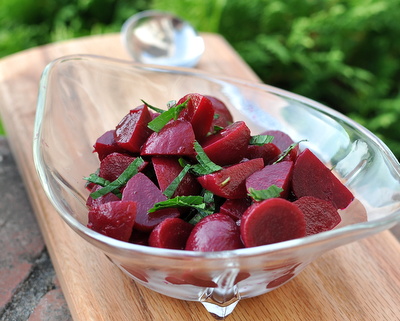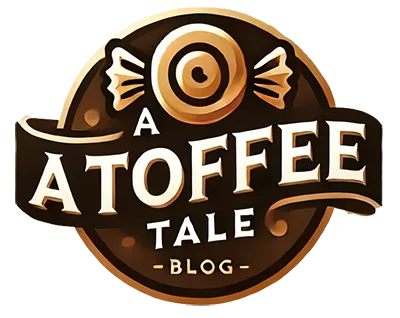Can Dogs Eat Pickled Beets? What Every Dog Owner Should Know-2024

Can Dogs Eat Pickled Beets? Pickled beets are made by preserving beets in a mixture of vinegar, salt, sugar, and spices. They’re often used as a tangy side dish or a salad topping for humans. While they’re delicious for us, the ingredients in pickled beets may not be safe for dogs.
The vinegar, salt, and sugar used in pickling can pose health risks to your pet. These ingredients can upset your dog’s stomach, cause dehydration, or even lead to more serious health issues. It’s important to understand these risks before offering your dog pickled beets as a treat. Let’s explore that- Can Dogs Eat Pickled Beets?
Are Pickled Beets Harmful to Dogs? Can Dogs Eat Pickled Beets?
Can Dogs Eat Pickled Beets? While beets themselves can be a healthy addition to your dog’s diet, pickled beets come with several risks due to the ingredients used in the pickling process. Let’s explore the potential harms of feeding pickled beets to your dog.
High Sodium Content
- Dehydration: Pickled beets are often high in sodium, which can lead to excessive thirst in dogs. Too much salt can cause dehydration, making your dog feel unwell.
- Salt Poisoning: In extreme cases, excessive salt intake can result in salt poisoning. Symptoms may include vomiting, diarrhea, lethargy, and even seizures.
Sugar Concerns
- Obesity: Many pickled beets contain added sugars, which can contribute to weight gain in dogs. Obesity puts dogs at risk for other health issues, including joint problems and heart disease.
- Dental Issues: Sugar can also stick to your dog’s teeth, leading to plaque buildup and potential tooth decay. Maintaining dental health is important, and sugary treats can worsen the situation.
Vinegar and Spices
- Stomach Irritation: The vinegar used in pickled beets can irritate your dog’s stomach, leading to discomfort, bloating, or digestive upset.
- Spice Sensitivity: Pickled beets often contain spices like garlic or onions, both of which are toxic to dogs. Even small amounts of these ingredients can cause serious health issues.
Can Dogs Eat Pickled Beets? Due to the high sodium, sugar, vinegar, and spices, pickled beets are not a safe option for your dog. Stick to fresh, unseasoned vegetables to keep your dog healthy and avoid these potential risks.
Do Pickled Beets Offer Any Nutritional Benefits for Dogs?
Can Dogs Eat Pickled Beets? Beets themselves are packed with nutrients that can be beneficial for dogs, but the pickling process can reduce these benefits significantly. Let’s take a closer look at the nutritional value of beets and why pickled beets are not the best choice for your dog.
Nutritional Benefits of Beets
- Vitamins and Minerals: Beets are a great source of essential vitamins like vitamin C and minerals such as potassium, which help support your dog’s overall health.
- Antioxidants: Beets contain antioxidants like betalains, which can help fight inflammation and support immune function.
The Impact of Pickling
- Reduced Nutritional Value: The process of pickling beets with vinegar, salt, and sugar can diminish their nutritional benefits. Some of the vitamins and antioxidants can break down or become less bioavailable during the pickling process.
- Added Ingredients: The addition of salt, sugar, and spices in pickled beets not only reduces the health benefits but also introduces ingredients that can be harmful to your dog’s health.
Health Risks Outweigh Benefits
- Overall Health Concerns: While fresh beets offer several health benefits for dogs, pickled beets come with more risks than rewards. The high sodium content, potential irritants like vinegar, and added sugar make them an unsafe choice for your dog.
Can Dogs Eat Pickled Beets? It’s better to avoid pickled beets and stick to fresh or cooked beets to ensure your dog gets the full nutritional benefits without the harmful side effects of pickling.
What Happens If Your Dog Eats Pickled Beets?
Can Dogs Eat Pickled Beets? If your dog happens to eat pickled beets, it’s important to understand what might happen based on the amount consumed and the ingredients involved. While small amounts of pickled beets may not cause significant harm, larger quantities can lead to health issues.
Possible Reactions to Small Amounts
- Mild Stomach Upset: Eating a small amount of pickled beets might cause some mild digestive discomfort, such as bloating, gas, or an upset stomach.
- Excessive Drooling or Discomfort: Your dog might experience some mild discomfort like drooling or pawing at their mouth, especially if the pickling ingredients irritate their digestive system.
Potential Issues from Larger Quantities
- Vomiting and Diarrhea: If your dog eats a larger quantity of pickled beets, they might experience more serious digestive issues, such as vomiting or diarrhea.
- Excessive Thirst: The high sodium content in pickled beets could lead to excessive thirst and increased urination as your dog tries to deal with the added salt in their system.
Signs to Watch for
- Salt Poisoning: Watch for signs of salt poisoning, which can include lethargy, tremors, or in severe cases, seizures. If you suspect salt poisoning, contact your vet immediately.
- Digestive Issues: Keep an eye on your dog for any persistent vomiting, diarrhea, or changes in behavior. If these symptoms last more than a few hours, seek veterinary advice.
Can Dogs Eat Pickled Beets? If your dog eats pickled beets, monitor them closely for any signs of discomfort or more serious issues. While a small bite may not cause harm, it’s always safer to stick to dog-friendly foods.
How to Safely Introduce Beets to Your Dog’s Diet
Can Dogs Eat Pickled Beets? If you’re considering adding beets to your dog’s diet, it’s important to do so safely and in a way that ensures their health. Beets are nutritious but should be introduced gradually and without harmful additives like salt or sugar.
Tips for Introducing Beets Safely
- Serve Plain, Cooked, or Steamed Beets: Always prepare beets by cooking or steaming them without adding any seasonings, salt, or butter. This method ensures your dog gets the nutritional benefits of beets without any harmful additives.
- Start with Small Amounts: Introduce beets in small portions, especially if it’s the first time your dog is trying them. This allows you to monitor for any potential allergies or sensitivities before increasing the serving size.
- Avoid Canned or Processed Beets: Canned or processed beets often contain added salt, sugar, or preservatives, which can be harmful to dogs. Stick to fresh, simple preparations to avoid these risks.
By following these guidelines, you can safely incorporate beets into your dog’s diet, providing them with the fiber, vitamins, and antioxidants that beets offer without the risks associated with pickled versions.
Healthy Alternatives to Pickled Beets
Can Dogs Eat Pickled Beets? If you’re looking for healthy snacks for your dog, there are plenty of alternatives to pickled beets that are safe and nutritious. These options provide great health benefits without the risks associated with pickled foods.
Healthy Alternatives to Pickled Beets
Fresh Vegetables:
- Carrots: A crunchy, low-calorie snack that is rich in vitamins and good for your dog’s teeth.
- Cucumbers: Low in calories and high in hydration, cucumbers are perfect for a refreshing treat.
- Zucchini: This vegetable is full of nutrients like vitamin C and is easy on your dog’s stomach.
Dog-Safe Fruits:
- Blueberries: Packed with antioxidants and vitamins, blueberries are a tasty, low-calorie treat.
- Apples (without seeds): Apples offer fiber and vitamins, but always remove the seeds, as they can be harmful to dogs.
Beet-Based Dog Treats:
- You can find dog treats that include natural beet ingredients, providing the benefits of beets without the harmful additives. Look for treats with simple, wholesome ingredients for a healthy alternative.
Can Dogs Eat Pickled Beets? By offering these fresh, dog-safe options, you can ensure your pet enjoys a variety of tasty and healthy treats, free from the risks of pickled beets.




